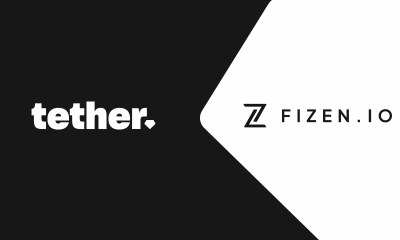Economy
How to Tackle the Challenges of Crypto Estate Planning

Learn about the challenges you’ll face with crypto estate learning and discover three possible ways to go about it.
While traditional assets like real estate, stocks, or cash are relatively easy to incorporate into estate plans, the decentralized and private nature of cryptocurrencies introduces new complexities.
Keep reading as we discuss the primary challenges of crypto estate planning and explore three viable options for addressing them.
What Makes Crypto Estate Planning Challenging?
Crypto estate planning presents unique difficulties that go beyond traditional financial assets.
Unlike bank accounts or physical property, cryptocurrencies operate on decentralized networks and are protected by private keys, making them more difficult to locate and access.
Additionally, the lack of clear regulations and the growing threat of cyberattacks further complicate the process. Transferring crypto assets to beneficiaries can become a legal and logistical nightmare without the right strategies.
Let’s discuss some of these challenges even further.
Locating and Accessing Crypto Assets
One of the biggest challenges with crypto estate planning is simply knowing where and how to locate the assets. The decentralized nature of cryptocurrencies makes it challenging to locate and access them after the owner’s death.
Digital wallets, often secured with private keys, may be difficult to find or require specialized knowledge to access. This is especially true if the owner has used multiple wallets or exchanges over time. These wallets can exist across multiple platforms or exchanges, and the decentralized nature of the blockchain means there’s no “help desk” to call if the executor of your estate can’t access them.
What’s worse, private keys are often long strings of random characters, impossible to guess or recreate. Without them, access to cryptocurrency is lost permanently.
Even if an heir knows you have Bitcoin (BTC) or Ether (ETH), they can’t unlock it without the necessary credentials. This situation makes it essential to have a secure but accessible way of sharing this information as part of your estate plan.
Fiduciary and Oversight Concerns
Traditional estate planning mechanisms, such as wills and trusts, may not be well-suited for managing crypto assets. Cryptocurrencies are less regulated than traditional financial assets. This raises questions about how fiduciaries—such as estate executors, trustees, or legal guardians—can legally manage or oversee these assets.
Bitcoin estate planning becomes particularly complex due to the legal uncertainties and the technical knowledge required to handle these digital assets. Fiduciaries may lack the technical expertise or understanding to manage these digital assets effectively. They may also face challenges in ensuring the security of the assets and protecting against potential losses due to market fluctuations or hacking.
Additionally, some jurisdictions are still figuring out how to treat cryptocurrencies in the context of estate planning.
Are they considered property, currencies, or securities? The classification matters because it determines how taxes apply and what legal rights your heirs have.
Until there’s greater regulatory clarity, crypto estate planning remains murky and filled with legal uncertainties.
Cybersecurity Threats
Cryptocurrency is a lucrative target for cybercriminals. Estate planning involves sharing sensitive information, such as private keys and wallet passwords, which introduces vulnerabilities to your assets.
If your information is compromised, your heirs may not only lose their inheritance but could also face the additional legal and financial burden of trying to recover stolen assets.
Unlike traditional assets that can be frozen or recovered through legal action, once cryptocurrency is stolen, it is extremely difficult—if not impossible—to retrieve. Therefore, cybersecurity is a critical aspect of crypto estate planning.
The risk of unauthorized access to digital wallets increases the complexity of estate planning, as it requires robust security measures to protect the assets. Proper encryption, secure storage, and limiting the number of people with access to sensitive information are all essential in protecting these digital assets from crypto hacks and scams.
Here Are Three Crypto Estate Planning Option That Work
Failing to plan effectively for the transfer of these assets after death can lead to lost wealth or legal challenges for heirs.
Will
While a will is a fundamental estate planning tool, it may not be sufficient for crypto assets. It’s essential to include specific instructions regarding the location of digital wallets, private keys, and any necessary access codes.
Consider appointing a tech-savvy executor who can navigate the complexities of cryptocurrencies. However, be aware that wills can be public documents, so sensitive information about private keys should be handled with care.
Trustee
A more secure option is appointing a trustee who has specific knowledge about how to manage crypto assets. This individual or entity would be responsible for managing and distributing your cryptocurrency holdings according to the instructions in a trust document.
By setting up a trust, you can avoid the public probate process, thereby keeping sensitive information, like private keys, out of the public domain. The trustee can also implement security measures to protect the assets from unauthorized access.
LLC
Another increasingly popular option is to establish an LLC in the United States to hold your cryptocurrency assets. This option allows you to separate your digital holdings from your personal estate, providing both legal protection and privacy.
Upon your death, the LLC would continue to exist, and ownership can be transferred according to the rules you’ve set in place.
An LLC can be particularly beneficial for people with significant crypto holdings, as it offers a legal structure that allows for smoother transitions of ownership. It can also help minimize tax liabilities and protect assets from creditors.
You can establish detailed instructions for how the LLC should be managed after your passing, including the distribution of crypto assets.
The LLC option provides a robust solution to many estate planning challenges. However, setting up and managing an LLC in the U.S. requires careful consideration and involves legal and financial professionals.
Final Take
Crypto estate planning requires a thoughtful and proactive approach. By understanding the challenges and exploring the available options, individuals can ensure that their crypto assets are protected and transferred according to their wishes.
It’s advisable to consult with legal and financial professionals who specialize in cryptocurrencies to develop a comprehensive estate plan that addresses the unique needs of digital assets.
Remember to also regularly review and update your plan as the crypto landscape evolves.
Economy
NGX Market Cap Surpasses N110trn as FY 2025 Earnings Impress Investors

By Dipo Olowookere
Investors at the Nigerian Exchange (NGX) Limited have continued to show excitement for the full-year earnings of companies on the exchange so far.
On Friday, Customs Street further appreciated by 1.01 per cent as more organization released their financial statements for the 2025 fiscal year.
During the session, traders continued their selective trading strategy, with the energy sector going up by 2.47 per cent at the close of business despite profit-taking in the banking counter, which saw its index down by 0.11 per cent.
Yesterday, the insurance space grew by 2.16 per cent, the industrial goods segment expanded by 1.70 per cent, and the consumer goods industry jumped by 0.42 per cent.
Consequently, the All-Share Index (ASI) increased by 1,722.13 points to 171,727.49 points from 170,005.36 points, and the market capitalisation soared by N1.106 trillion to N110.235 trillion from the N109.129 trillion it ended on Thursday.
Business Post reports that there were 59 appreciating stocks and 19 depreciating stocks on Friday, representing a positive market breadth index and strong investor sentiment.
The trio of Omatek, Deap Capital, and NAHCO gained 10.00 per cent each to sell for N2.64, N6.82, and N136.40 apiece, as Zichis and Austin Laz appreciated by 9.98 per cent each to close at N6.72 and N5.40, respectively.
Conversely, The Initiates depreciated by 9.74 per cent to N19.45, DAAR Communications slumped by 7.32 per cent to N1.90, United Capital crashed by 6.55 per cent to N18.55, Coronation Insurance lost 5.71 per cent to quote at N3.30, and First Holdco shrank by 5.53 per cent to N47.00.
The activity chart showed an improvement in the activity level, with the trading volume, value, and number of deals up by 33.77 per cent, 93.27 per cent, and 10.63 per cent, respectively.
This was because traders transacted 953.8 million shares worth N43.1 billion in 51,005 deals compared with the 713.0 million shares valued at N22.3 billion traded in 46,104 deals a day earlier.
Fidelity Bank was the most active with 92.4 million units sold for N1.8 billion, Chams transacted 69.2 million units valued at N310.9 million, Deap Capital exchanged 59.1 million units worth N382.7 million, Access Holdings traded 57.2 million units valued at N1.3 billion, and Tantalizers transacted 48.6 million units worth N228.2 million.
Economy
Naira Retreats to N1,366.19/$1 After 13 Kobo Loss at Official Market

By Adedapo Adesanya
The value of the Naira contracted against the United States Dollar on Friday by 13 Kobo or 0.01 per cent to N1,366.19/$1 in the Nigerian Autonomous Foreign Exchange Market (NAFEX) from the previous day’s value of N1,366.06/$1.
According to data from the Central Bank of Nigeria (CBN), the Nigerian currency also depreciated against the Pound Sterling in the same market window yesterday by N2.37 to N1,857.75/£1 from the N1,855.38/£1 it was traded on Thursday, and further depleted against the Euro by 57 Kobo to close at N1,612.52/€1 versus the preceding session’s N1,611.95/€1.
In the same vein, the exchange rate for international transactions on the GTBank Naira card showed that the Naira lost N8 on the greenback yesterday to N1,383/$1 from the previous day’s N1,375/$1 and at the black market, the Nigerian currency maintained stability against the Dollar at N1,450/$1.
FX analysts anticipate this trend to persist, primarily influenced by increasing external reserves, renewed inflows of foreign portfolio investments, and a reduction in speculative demand.
In the short term, stability in the FX market is expected to continue, supported by policy interventions and improving market confidence.
Nigeria’s foreign reserves experienced an upward trajectory, increasing by $632.38 million within the week to $46.91 billion from $46.27 billion in the previous week.
The Dollar appreciation this week appears to be largely technical, serving as a correction to the substantial losses experienced from mid- to late January.
Meanwhile, the cryptocurrency market slightly appreciated, with Bitcoin (BTC) climbing near $68,000, up nearly 5 per cent since hitting $60,000 late on Thursday after investor confidence in crypto’s utility as a store of value, inflation hedge, and digital currency faltered.
The sell-off extended beyond crypto, with silver plunging 15 per cent and gold sliding more than 2 per cent. US stocks also fell.
The latest recoup saw the price of BTC up by 4.7 per cent to $67,978.96, as Ethereum (ETH) appreciated by 6.3 per cent to $2,021.10, and Ripple (XRP) surged by 9.5 per cent to $1.42.
In addition, Solana (SOL) grew by 7.3 per cent to $85.22, Cardano (ADA) added 6.1 per cent to trade at $0.2683, Dogecoin (DOGE) expanded by 5.4 per cent to $0.0958, Litecoin (LTC) rose by 5.2 per cent to $53.50, and Binance Coin (BNB) jumped by 2.3 per cent to $637.79, while the US Dollar Tether (USDT) and the US Dollar Coin (USDC) traded flat at $1.00 each.
Economy
Oil Prices Climb on Worries of Possible Iran-US Conflict

By Adedapo Adesanya
Oil prices settled higher on Friday as traders worried that this week’s talks between the US and Iran had failed to reduce the risk of a military conflict between the two countries.
Brent crude futures traded at $68.05 a barrel after going up by 50 cents or 0.74 per cent, and the US West Texas Intermediate (WTI) crude futures finished at $63.55 a barrel due to the addition of 26 cents or 0.41 per cent.
Iran and the US held negotiations in Muscat, the capital of Oman, on Friday to overcome sharp differences over Iran’s nuclear programme.
It was reported that the talks had ended with Iran’s foreign minister saying negotiators will return to their capitals for consultations and the talks will continue.
Regardless, the meeting kept investors anxious about geopolitical risk, as Iran wanted to stick to nuclear issues while the US wanted to discuss Iran’s ballistic missiles and support for armed groups in the region.
Any escalation of tension between the two nations could disrupt oil flows, since about a fifth of the world’s total consumption passes through the Strait of Hormuz between Oman and Iran.
Saudi Arabia, the United Arab Emirates, Kuwait and Iraq export most of their crude via the strait, as does Iran, which is a member of the Organisation of the Petroleum Exporting Countries (OPEC).
According to Reuters, Iran objected to the presence of any US Central Command (CENTCOM) or other regional military officials, saying that would jeopardise the process.
The current confrontation was sparked by more than two weeks of unrest in Iran that saw authorities launch a deadly crackdown that killed thousands of civilians and shocked the world. As reports of the deaths trickled out of Iran, US President Donald Trump threatened to strike Iran if any of the tens of thousands of protesters arrested were executed.
Meanwhile, Kazakhstan’s planned oil exports could fall by as much as 35 per cent this month via its main route through Russia, as the country’s top oil company, Tengiz oilfield, slowly recovers from fires at power facilities in January.
ING analysts have pointed out Iran’s neighbour, Iraq, and a disagreement with the US as another bullish factor for oil prices. It seems Iraqi politicians favour Mr Nouri al-Maliki as the country’s next Prime Minister, but the US thinks Mr al-Maliki is too close to Iran. President Trump has already threatened the oil producer with consequences if he emerges as PM.
-

 Feature/OPED6 years ago
Feature/OPED6 years agoDavos was Different this year
-
Travel/Tourism9 years ago
Lagos Seals Western Lodge Hotel In Ikorodu
-

 Showbiz3 years ago
Showbiz3 years agoEstranged Lover Releases Videos of Empress Njamah Bathing
-

 Banking8 years ago
Banking8 years agoSort Codes of GTBank Branches in Nigeria
-

 Economy3 years ago
Economy3 years agoSubsidy Removal: CNG at N130 Per Litre Cheaper Than Petrol—IPMAN
-

 Banking3 years ago
Banking3 years agoSort Codes of UBA Branches in Nigeria
-

 Banking3 years ago
Banking3 years agoFirst Bank Announces Planned Downtime
-

 Sports3 years ago
Sports3 years agoHighest Paid Nigerian Footballer – How Much Do Nigerian Footballers Earn



















